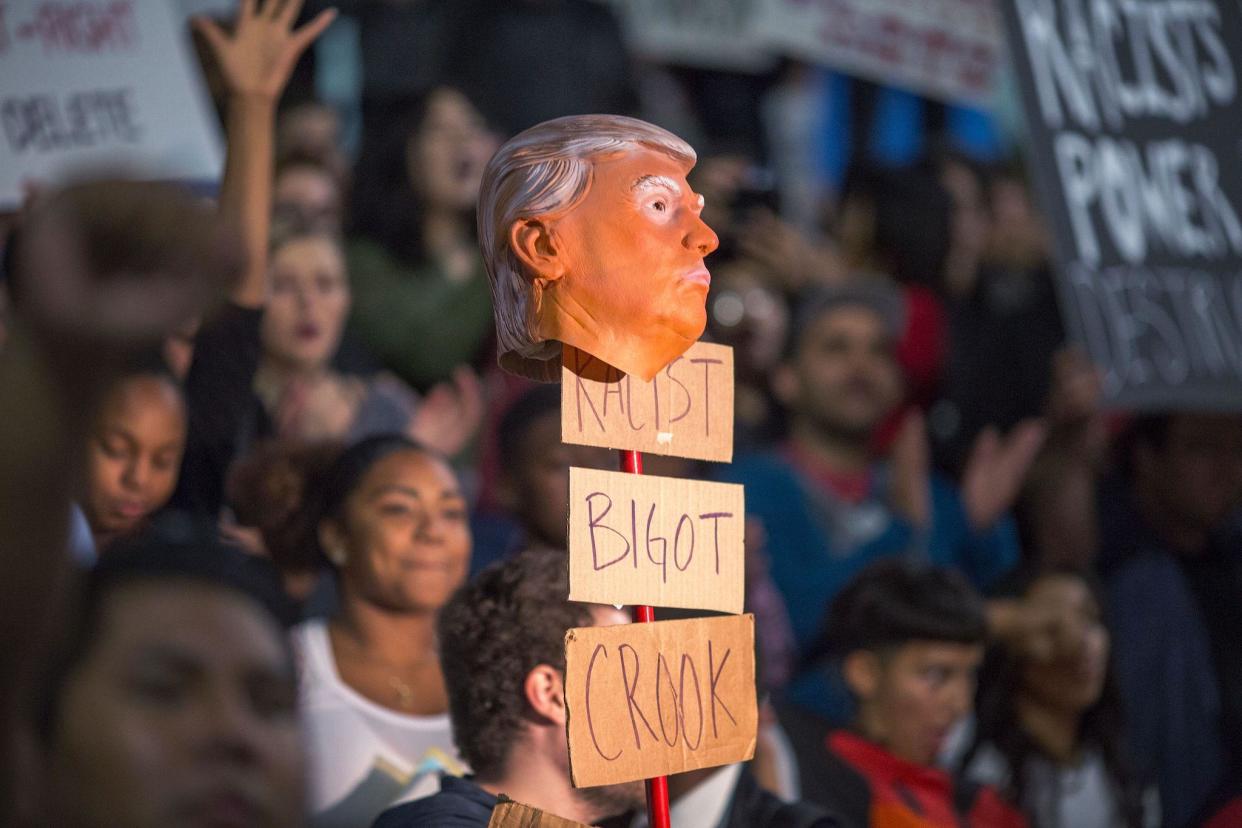I was in the original 'alt-left' and this is what we really stood for

After Donald Trump condemned the role of the “alt-left” at Charlottesville, a flurry of articles appeared claiming “there’s no such thing as the alt-left” – that it’s a “myth” created by the right and/or “centrist liberals” to discredit the left.
CNN, for example, quoted commentators who claimed that “alt-left” is a “made-up term” used by people on the right – that it’s “not a thing. It's just an insult”. The Washington Post, meanwhile, claimed that liberals – not the right – invented the label.
I was surprised to read these claims that the “alt-left” doesn’t exist. In the 1990s, I was part of a loose group of early “web activists” which used terms such as “alternative left” and “alt-left” (among others) to describe itself.
We flattered ourselves that we were “alternative” because the ideas we promoted such as Basic Income and anti-work notions weren’t yet fashionable in most left-aligned milieus – in fact they tended to be frowned upon as “not serious”. Some of my modest 1990s “alt-left” output , like drawing attention to fear-inducing biases in conservative media, did eventually appear in more mainstream publications.
Subcultures of the “alternative left” and “alternative right” flourished in Usenet groups and self-published zines. Usenet was the precursor to internet forums – a globe-spanning collection of newsgroups which popularised terms such as “FAQ” and “spam”.
Political newsgroups on Usenet ranged from the general alt.politics to the specialised alt.politics.radical-left. As Wired magazine’s style guide put it in 1996: “In colloquial contexts, ‘alt.’ has become shorthand for ‘alternative’ and ‘hip’, as in the book alt.culture. It can be used as a catchphrase independent of Usenet.”
“Alt-left” never became a proprietary title for a formal group or political identity in the way that’s claimed for the allegedly recent coinage of the “alt-right” label by Richard Spencer, but it’s always been a valid signifier – even though, as with the term “liberal”, it means different things to different people.
The meanings attributed to labels shift over time, of course. “Alt-right”, in the 1990s, seemed to denote an assortment of fringe libertarians, anarcho-capitalists and Ayn Rand fans. The common theme of these groups (alt.politics.libertarian, for example) was the elimination of the state in favour of private property and markets.
The “alt-right” term clearly has darker connotations now. The “alt-left” label, meanwhile, has also shifted in usage – although not so darkly. Many commentators, including myself, currently use “alt-left” to refer, critically, to anti-liberal leftists with a penchant for conspiracy-type framing.
One of the ironies of Trump’s “alt-left” reference – and reactions to it – is that since the “alt-right” came into the spotlight via Breitbart, Steve Bannon, etc, “alt-left” has been used as a label to disparagingly brand those on the left who are perceived as helping Trump. Wikileaks, for example, came under fire because of the perception that it aided Trump’s campaign. In August 2016, The Intercept’s Robert Mackey wrote that “In recent months, the WikiLeaks Twitter feed has started to look more like the stream of an opposition research firm working mainly to undermine Hillary Clinton than the updates of a non-partisan platform for whistleblowers.”
More recently, some influential “left” commentators have claimed that a US “deep state” seeks to undermine Donald Trump and poses a greater threat to democracy than either Trump or Putin. Glenn Greenwald, for example, wrote a piece titled: The Deep State Goes to War With President-Elect, Using Unverified Claims, as Democrats Cheer. Greenwald has been critical of Trump, but is perceived by many as someone who spends far more time criticising “Dems” and “liberals” (analysis of his Twitter account tends to give this impression).
The combination of this emphasis (attacking “liberals” and “Dems”) and framing (“deep state” conspiracy, etc) has led to a section of the left being labelled “alt-left”, together with claims of a convergence between this “alt-left” and a broader “alt-right” – at least to the extent of their shared anti-liberal emphasis and anti-establishment framing.
Trump was using the “alt-left” label in a different sense, of course – he was apparently conflating “antifascist” with “alt-left”. Those who reacted to Trump’s misuse of the term by denying that the alt-left exists, or by claiming that it’s a recently-created myth, are making historical errors of fact – as are those who claim that the difference between the “alt-right” and “alt-left” is that the former was created by its subscribers and the latter by its opponents. The origins of these terms are more organic, and less calculated, than claimed, and go back to the 1990s.
My perspective on this issue is different from most of the commentators I've read, owing to my age and my early adoption of the “alt-left” label in what seemed like more innocent times. We should take care not to recycle historically short-sighted assertions regarding this political terminology.

 Yahoo News
Yahoo News 
